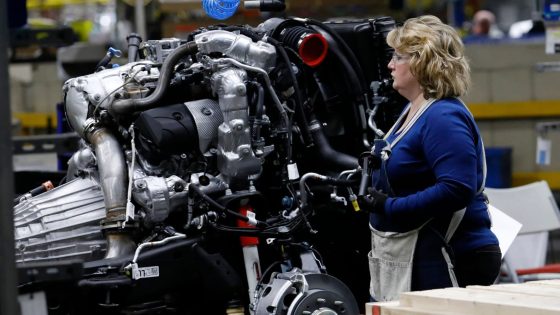On February 3, 2025, U.S. tariffs imposed on imports from Canada and Mexico have significantly impacted the automotive industry. Carmakers’ shares have fallen sharply as concerns grow over potential disruptions to supply chains due to these trade policies.
- Carmakers face challenges from US tariffs
- Trump defends tariffs against Canada’s practices
- Trade war implications discussed by experts
- CNN warns of turbulent tariff era ahead
- White House announces new import tariffs
The recent tariffs introduced by the Trump administration are aimed at protecting American industries but have raised alarms within the automotive sector. Major car manufacturers rely heavily on cross-border supply chains for parts and assembly, making them susceptible to increased costs associated with new tariffs.
Key impacts include:
- A decrease in share prices for major automakers.
- Potential delays in vehicle production due to higher import costs.
- Increased retail prices for consumers as manufacturers adjust to changing cost structures.
Analysts suggest that these tariffs could lead to a significant restructuring of supply chains within the industry. Companies may need to source materials domestically or seek alternative suppliers outside of North America, which could further complicate logistics and increase overall manufacturing expenses.
The long-term effects of these tariffs remain uncertain, but they are expected to challenge the profitability of carmakers while potentially leading to higher prices for consumers across North America. Stakeholders in the automotive market will need to monitor developments closely as they navigate this evolving trade landscape.
This situation underscores the delicate balance between trade policies and economic stability within the automotive sector, highlighting how interconnected global markets can influence domestic industries directly.

































